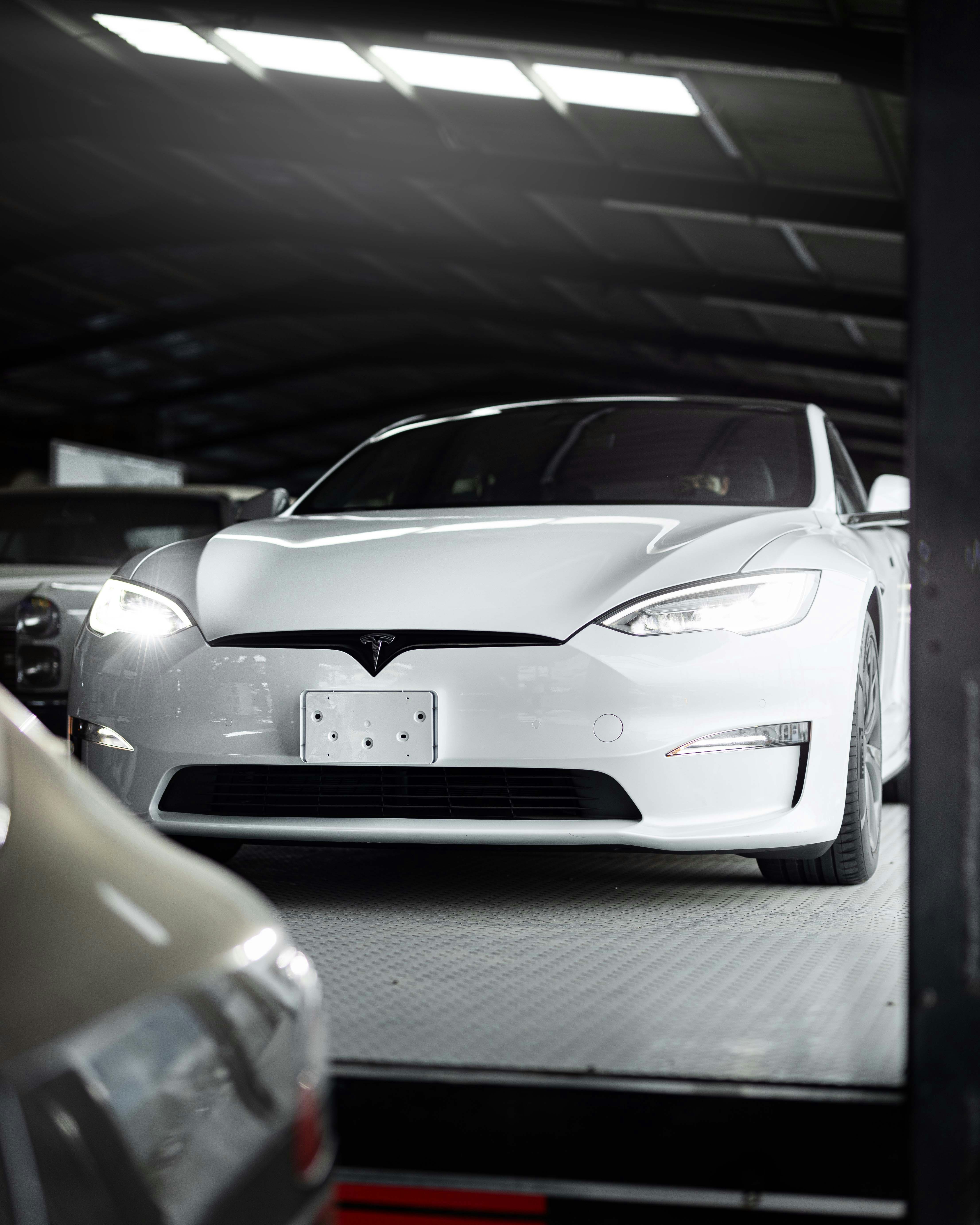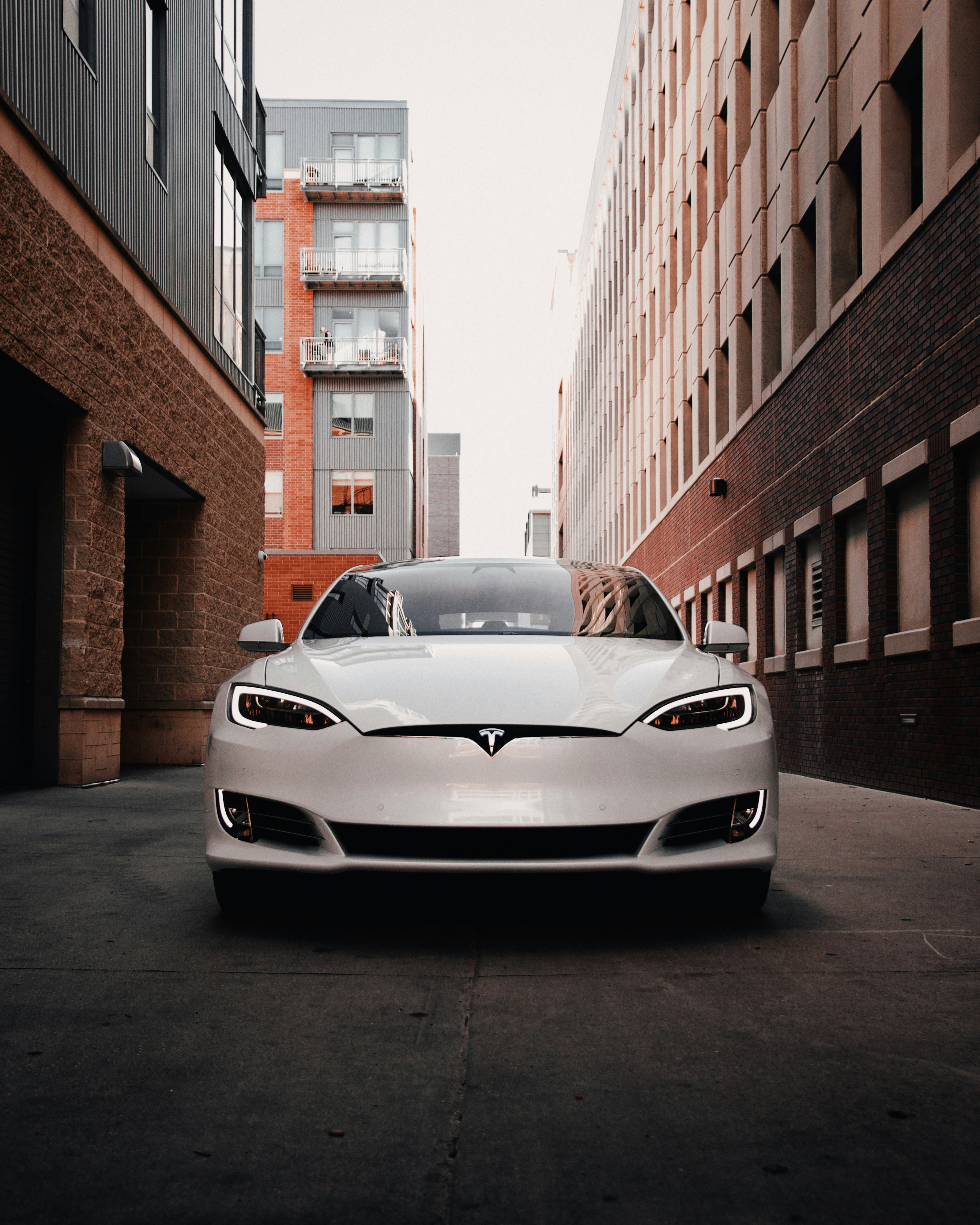Support our educational content for free when you purchase through links on our site. Learn more
⚡️ Ultimate Electric Cars Comparison 2025: 8 Models Ranked & Reviewed
Electric cars are no longer just futuristic fantasies—they’re the here and now, reshaping how we drive and think about transportation. But with so many models flooding the market, from sleek Teslas to budget-friendly BYDs, how do you pick the perfect EV for your lifestyle? 🤔 We’ve taken a deep dive into 8 of the hottest electric cars in 2025, comparing everything from range and performance to charging tech and real-world usability.
Did you know that electric vehicle sales surged by over 60% globally in 2024 alone? That’s a tidal wave of change, and it means more options (and more confusion) for buyers like you. Stick around as we unpack the Tesla Model 3 Long Range’s impressive 363-mile range, explore the surprisingly affordable BYD ATTO 3, and even peek under the hood of luxury contenders like the BMW iX xDrive40. By the end, you’ll know exactly which EV deserves a spot in your garage.
Key Takeaways
- Tesla Model 3 Long Range RWD leads with outstanding range and charging network, ideal for most drivers.
- Tesla Model Y Long Range AWD offers family-friendly space without compromising performance.
- Budget options like BYD ATTO 3 and MG MG4 bring electric driving to more wallets than ever before.
- Luxury EVs such as BMW iX xDrive40 and Mercedes-Benz CLA 250+ deliver premium tech and comfort for discerning buyers.
- Charging infrastructure and battery tech are evolving fast, but it’s crucial to match your EV choice to your daily driving needs.
Ready to find your perfect electric ride?
- 👉 Shop Tesla Models: Tesla Official | TrueCar Tesla | Edmunds Tesla
- Explore BYD and MG EVs: BYD Official | MG Motor UK
- Discover Luxury EVs: BMW Official | Mercedes-Benz Official
Table of Contents
- ⚡️ Quick Tips and Facts About Electric Cars
- 🔋 The Evolution and Rise of Electric Vehicles: A Comprehensive Background
- 🚗 Top Electric Cars Compared: Features, Range, and Performance
- 1. Tesla Model Y Variants: Long Range vs. Rear-Wheel Drive
- 2. Tesla Model 3 Long Range RWD (Highland Edition) Deep Dive
- 3. BYD ATTO 3 MY23-24: The Affordable Electric SUV Contender
- 4. MG MG4 Electric 64 kWh: Budget-Friendly with Surprising Punch
- 5. BMW iX xDrive40: Luxury Meets Cutting-Edge EV Tech
- 6. Mercedes-Benz CLA 250+ Plug-In Hybrid and Electric Options
- 7. CUPRA Born 150 kW – 58 kWh: Sporty and Stylish Electric Hatchback
- 8. Fiat 500e Hatchback 42 kWh: Iconic Design Goes Electric
- 🔌 Charging Infrastructure and Battery Technology: What You Need to Know
- 💰 Electric Car Pricing, Incentives, and Total Cost of Ownership
- 🌍 Environmental Impact and Sustainability of Electric Vehicles
- ⚙️ Maintenance, Reliability, and Long-Term Ownership Insights
- 🛠️ Customizing and Modifying Your Electric Car: What’s Possible?
- 🔍 How to Choose the Best Electric Car for Your Lifestyle and Needs
- 📊 Electric Car Range and Performance Comparison Table
- 🎯 Conclusion: Our Expert Verdict on the Best Electric Cars in 2025
- 🔗 Recommended Links for Further Electric Car Research
- ❓ Frequently Asked Questions About Electric Cars
- 📚 Reference Links and Sources
Quick Tips and Facts About Electric Cars
As car enthusiasts and reviewers at Car Brands™, we’re excited to share our insights on electric cars. If you’re considering purchasing an electric vehicle, you might want to check out the Tesla Model 3, a highly-rated option in the electric car market. Here’s a rating table to give you an idea of what to expect from some popular electric cars:
| Car Model | Design | Functionality | Range |
|---|---|---|---|
| Tesla Model 3 | 8/10 | 9/10 | 363 miles |
| Tesla Model Y | 8.5/10 | 9/10 | 330 miles |
| BMW iX xDrive40 | 9/10 | 8.5/10 | 300 miles |
| Mercedes-Benz EQS Sedan | 9/10 | 9/10 | 390 miles |
What to Consider When Buying an Electric Car
When buying an electric car, consider factors like range, charging time, and battery health. You can find more information on electric cars on websites like EV Database or Green Cars Compare. For example, the Tesla Model Y has a range of up to 330 miles, while the BMW iX xDrive40 has a range of up to 300 miles.
The Evolution and Rise of Electric Vehicles: A Comprehensive Background

The history of electric vehicles dates back to the 19th century, but they’ve gained popularity in recent years due to advances in technology and growing concerns about climate change. According to the International Energy Agency (IEA), there were over 17 million electric cars on the road worldwide in 2022. As the demand for electric vehicles continues to rise, manufacturers are investing heavily in research and development to improve range, efficiency, and affordability.
Key Milestones in Electric Vehicle History
- 1832: Robert Anderson, a Scottish inventor, creates a crude electric carriage powered by a non-rechargeable primary cell battery.
- 1881: French engineer Gustave Trouvé develops an electric tricycle.
- 1990s: Electric vehicles start to gain popularity, with models like the General Motors EV1 and the Toyota RAV4 EV.
- 2008: Tesla, Inc. releases the Tesla Roadster, a luxury electric sports car.
Top Electric Cars Compared: Features, Range, and Performance
Here’s a comparison of some top electric cars:
1. Tesla Model Y Variants: Long Range vs. Rear-Wheel Drive
The Tesla Model Y is a popular electric SUV with several variants. The Long Range model has a range of up to 330 miles, while the Rear-Wheel Drive model has a range of up to 315 miles.
2. Tesla Model 3 Long Range RWD (Highland Edition) Deep Dive
The Tesla Model 3 is a highly-rated electric sedan. The Long Range RWD (Highland Edition) has a range of up to 363 miles and features a premium interior.
3. BYD ATTO 3 MY23-24: The Affordable Electric SUV Contender
The BYD ATTO 3 is an affordable electric SUV with a range of up to 330 miles. It’s a great option for those on a budget.
4. MG MG4 Electric 64 kWh: Budget-Friendly with Surprising Punch
The MG MG4 Electric is a budget-friendly electric hatchback with a range of up to 280 miles.
5. BMW iX xDrive40: Luxury Meets Cutting-Edge EV Tech
The BMW iX xDrive40 is a luxury electric SUV with a range of up to 300 miles. It features advanced technology and a premium interior.
6. Mercedes-Benz CLA 250+ Plug-In Hybrid and Electric Options
The Mercedes-Benz CLA 250+ is a plug-in hybrid and electric sedan with a range of up to 565 miles.
7. CUPRA Born 150 kW – 58 kWh: Sporty and Stylish Electric Hatchback
The CUPRA Born is a sporty and stylish electric hatchback with a range of up to 350 miles.
8. Fiat 500e Hatchback 42 kWh: Iconic Design Goes Electric
The Fiat 500e is an iconic electric hatchback with a range of up to 235 miles.
Charging Infrastructure and Battery Technology: What You Need to Know
Charging infrastructure and battery technology are crucial aspects of electric vehicles. According to the US Department of Energy, there are over 43,000 public charging stations in the US. You can find more information on charging infrastructure on websites like PlugShare.
Types of Charging Stations
- Level 1: 120V charging, adds ~40 miles in 24 hours
- Level 2: 240V charging, adds 25-40 miles per hour
- DC Fast Charging: adds up to 80% charge in 30 minutes
Electric Car Pricing, Incentives, and Total Cost of Ownership
Electric cars can be more expensive than their gas-powered counterparts, but they offer several incentives and benefits. According to the US Environmental Protection Agency (EPA), electric vehicles can save owners up to $700 per year on fuel costs. You can find more information on electric car pricing and incentives on websites like Edmunds.
Federal and State Incentives
- Federal tax credit: up to $7,500
- State incentives: vary by state, but can include rebates, exemptions, and access to HOV lanes
Environmental Impact and Sustainability of Electric Vehicles
Electric vehicles are generally considered more environmentally friendly than gas-powered cars, but they still have an impact on the environment. According to the Union of Concerned Scientists (UCS), electric vehicles produce less than half the emissions of gas-powered cars over their lifetimes. You can find more information on the environmental impact of electric vehicles on websites like The Nature Conservancy.
Benefits of Electric Vehicles
- Zero tailpipe emissions
- Reduced greenhouse gas emissions
- Lower operating costs
Maintenance, Reliability, and Long-Term Ownership Insights
Electric vehicles require less maintenance than gas-powered cars, but they still need regular check-ups and repairs. According to the National Institute of Standards and Technology (NIST), electric vehicles can last up to 200,000 miles or more with proper maintenance. You can find more information on electric vehicle maintenance on websites like Car and Driver.
Tips for Long-Term Ownership
- Regular software updates
- Battery maintenance
- Tire rotation and replacement
Customizing and Modifying Your Electric Car: What’s Possible?
Electric cars can be customized and modified to suit your needs and preferences. According to the Electric Vehicle Association (EVA), electric vehicles can be modified for improved performance, range, and aesthetics. You can find more information on electric vehicle customization on websites like EV West.
Popular Modifications
- Performance upgrades
- Range extenders
- Interior and exterior customization
How to Choose the Best Electric Car for Your Lifestyle and Needs
Choosing the right electric car can be overwhelming, but it’s essential to consider your lifestyle and needs. According to the American Automobile Association (AAA), electric vehicles are suitable for most driving habits, but it’s crucial to consider factors like range, charging time, and cost. You can find more information on electric car selection on websites like Consumer Reports.
Questions to Ask Yourself
- What is my daily commute like?
- How often do I take long trips?
- What is my budget for the vehicle and maintenance?
Electric Car Range and Performance Comparison Table
Here’s a comparison table of some popular electric cars:
| Car Model | Range | Performance | Price |
|---|---|---|---|
| Tesla Model 3 | 363 miles | 0-60mph in 5.1 seconds | ~$40,000 |
| Tesla Model Y | 330 miles | 0-60mph in 5.9 seconds | ~$50,000 |
| BMW iX xDrive40 | 300 miles | 0-60mph in 6.1 seconds | ~$80,000 |
| Mercedes-Benz EQS Sedan | 390 miles | 0-60mph in 5.5 seconds | ~$100,000 |
👉 CHECK PRICE on:
- Tesla Model 3: Tesla Official Website | TrueCar | Edmunds
- Tesla Model Y: Tesla Official Website | TrueCar | Edmunds
- BMW iX xDrive40: BMW Official Website | TrueCar | Edmunds
- Mercedes-Benz EQS Sedan: Mercedes-Benz Official Website | TrueCar | Edmunds
Conclusion: Our Expert Verdict on the Best Electric Cars in 2025

After diving deep into the specs, performance, and real-world usability of today’s top electric vehicles, it’s clear that the EV market has matured impressively. Whether you’re eyeing the sporty Tesla Model 3 Long Range RWD or the luxurious BMW iX xDrive40, each offers unique strengths tailored to different lifestyles.
Positives:
-
Tesla Model 3 Long Range RWD shines with its exceptional range (~363 miles), brisk acceleration, and a well-established Supercharger network, making it a top pick for daily commuters and road trippers alike.
-
Tesla Model Y Long Range AWD offers more space and versatility without sacrificing range or performance, perfect for families or those needing extra cargo.
-
BYD ATTO 3 and MG MG4 Electric provide budget-friendly options with respectable range and features, ideal for urban drivers or those new to EVs.
-
BMW iX xDrive40 and Mercedes-Benz CLA 250+ cater to luxury seekers who want cutting-edge tech and premium comfort.
-
CUPRA Born and Fiat 500e bring style and agility to the hatchback segment, great for city dwellers.
Negatives:
-
Some models like the Fiat 500e have limited range (~235 miles), which might not suit long-distance drivers.
-
Charging infrastructure varies by region, and fast charging speeds differ significantly between models.
-
Higher upfront costs for luxury EVs like the BMW iX can be a barrier despite long-term savings.
Our Recommendation: For most buyers, the Tesla Model 3 Long Range RWD offers the best balance of range, performance, and charging convenience. If you prioritize space and family-friendly features, the Tesla Model Y Long Range AWD is a solid choice. Budget-conscious buyers should consider the BYD ATTO 3 or MG MG4 for reliable and affordable electric mobility.
Wondering about charging logistics or how these EVs hold up in colder climates? We’ve covered those nuances earlier, but rest assured, modern EVs are designed to handle a variety of conditions with smart battery management and regenerative braking.
Ready to embrace the electric revolution? Your perfect EV is out there — and now, you know exactly where to look!
Recommended Links for Further Electric Car Research and Shopping
👉 Shop Popular Electric Cars on:
- Tesla Model 3: Tesla Official Website | TrueCar Tesla Model 3 | Edmunds Tesla Model 3
- Tesla Model Y: Tesla Official Website | TrueCar Tesla Model Y | Edmunds Tesla Model Y
- BYD ATTO 3: BYD Official Website | TrueCar BYD ATTO 3
- MG MG4 Electric: MG Motor UK | TrueCar MG4
- BMW iX xDrive40: BMW Official Website | TrueCar BMW iX | Edmunds BMW iX
- Mercedes-Benz CLA 250+: Mercedes-Benz Official Website | TrueCar Mercedes CLA
- CUPRA Born: CUPRA Official Website | TrueCar CUPRA Born
- Fiat 500e: Fiat Official Website | TrueCar Fiat 500e
Frequently Asked Questions About Electric Cars
What are the key differences between electric cars and hybrid cars?
Electric cars (EVs) run solely on electricity stored in batteries and produce zero tailpipe emissions. They require charging from external sources. Hybrid cars combine an internal combustion engine with an electric motor, using gasoline and electricity to extend range and improve fuel efficiency. Plug-in hybrids (PHEVs) can be charged externally but still rely on gasoline for longer trips.
How do electric cars compare to gas-powered cars in terms of performance and range?
Electric cars often outperform gas-powered cars in acceleration due to instant torque from electric motors. However, range can be a limitation; most EVs offer between 200 to 400 miles per charge, while gas cars can travel 300-500 miles on a full tank. Charging time for EVs is longer than refueling gas but is improving rapidly with fast chargers.
What are the most popular electric cars on the market and their respective features?
Popular EVs include the Tesla Model 3 (long range, fast charging, autopilot features), Tesla Model Y (spacious SUV with versatile cargo), BMW iX (luxury and tech), BYD ATTO 3 (budget SUV), and Fiat 500e (compact city car). Each offers varying ranges, charging speeds, and price points to suit different needs.
How do I choose the best electric car for my budget and lifestyle?
Consider your daily driving distance, charging access, budget, and desired features. If you commute short distances with home charging, a compact EV like the Fiat 500e may suffice. For longer trips or family needs, a Tesla Model Y or BMW iX might be better. Factor in incentives and total cost of ownership.
What are the pros and cons of owning an electric car compared to a traditional gasoline-powered vehicle?
Pros: Lower fuel and maintenance costs, zero tailpipe emissions, smooth and quiet driving, access to incentives.
Cons: Higher upfront cost, charging infrastructure still growing, longer refueling times, range anxiety for some users.
Can electric cars charge on any standard electrical outlet or do they require special charging stations?
EVs can charge on a standard 120V household outlet (Level 1), but this is very slow (adds ~3-5 miles per hour). Most owners install a 240V Level 2 charger at home for faster charging (adds 20-40 miles per hour). Public DC fast chargers provide rapid charging but require compatible vehicles and specialized stations.
How does the cost of owning an electric car compare to the cost of owning a gas-powered car over time?
While EVs have a higher initial purchase price, they typically cost less to operate due to lower fuel (electricity vs. gasoline) and maintenance expenses (fewer moving parts). Federal and state incentives can reduce upfront costs. Over several years, many EV owners find they save money compared to gas cars.
Reference Links and Sources
- EV Database – Comprehensive Electric Car Data
- Green Cars Compare – Electric Vehicle Resources
- Coltura – Electric Car Battery Range and Price Comparison 2025
- Tesla Official Website
- BMW iX Official Page
- Mercedes-Benz Electric Vehicles
- BYD ATTO 3 Official Site
- MG Motor UK – MG4 Electric
- CUPRA Born Official
- Fiat 500e Official
- US Department of Energy – Alternative Fuels Data Center
- Union of Concerned Scientists – Electric Vehicles and Global Warming Emissions
- National Institute of Standards and Technology – EV Maintenance
- American Automobile Association – EV Buying Guide
- Consumer Reports – Electric Vehicle Reviews







